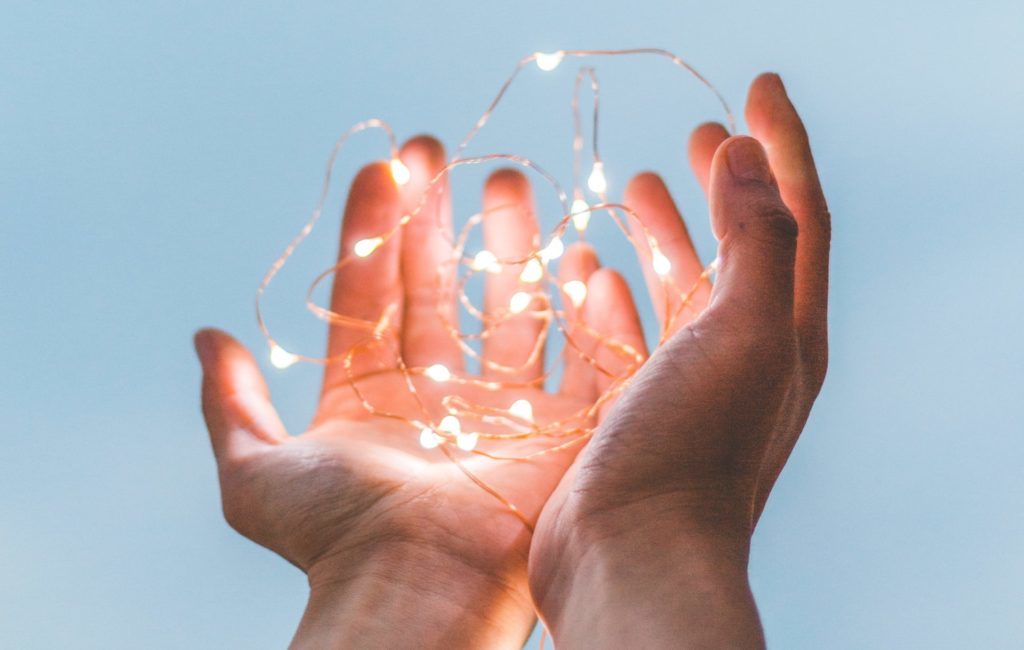
We are pleased to announce the nominees for the 2018 DLF Comm/Cap Award!
This biennial award honors constructive, community-minded capacity-building in digital libraries and allied fields: efforts that contribute to our ability to collaborate across institutional lines and/or work toward something larger, together.
The 2018 award will go to an inspiring project, team, or person selected by the Digital Library Federation membership at large. The winner (person or group) will receive a $1000 prize, one free Forum registration, and some level of assistance toward travel expenses to make it possible for a representative to accept the award certificate in person at the DLF Forum event at which they will be honored.
Each DLF member organization gets one vote. Voting is open from May 24 – June 8, 2018 (at 11:59PM ET) and DLF’s liason at each institution has been sent further instructions. For your local DLF liason’s contact information, get in touch with Program Associate for Advancement & Awards Becca Quon.
Congratulations to all thirteen nominees, and thank you for your work.
- Amanda Meeks
- Digital Library of the Caribbean
- Digital POWRR
- Documenting the Now
- Dr. Melissa Nobles and Professor Margaret Burnham
- Educopia Institute
- Georgia HomePLACE
- Katherine Boss
- Kristi Park
- Metropolitan New York Library Council (METRO) / Studio599
- Santa Barbara Statement on Collections as Data
- South Asian American Digital Archive
We Here
Read more about each nominee below.
Amanda Meeks (@A_meeksie)
Founder of WTF Maker Nights.
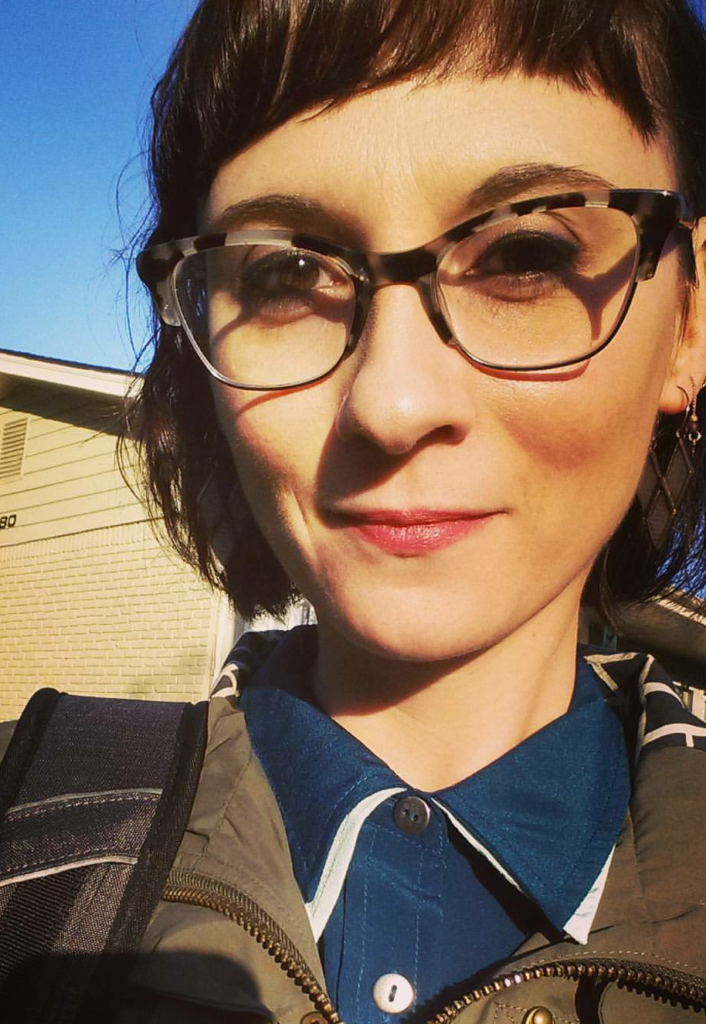 Through her work as the Teaching, Learning and Research Services Librarian (Arts/Humanities) at Northern Arizona University, Amanda Meeks has been working to close the gender gap in technology. She has championed creating inclusive, equitable, and diverse making spaces throughout Arizona with the creation of “Women/Trans/Femme Maker Nights.”
Through her work as the Teaching, Learning and Research Services Librarian (Arts/Humanities) at Northern Arizona University, Amanda Meeks has been working to close the gender gap in technology. She has championed creating inclusive, equitable, and diverse making spaces throughout Arizona with the creation of “Women/Trans/Femme Maker Nights.”
Women/Trans/Femme (WTF) Maker Nights strives to address the disparity in gender representation in tech environments (e.g. library makerspaces) and has centered the voices, skills, and visibility of communities often relegated to the margins. WTF Makers Nights offers the LGBTQ community, advocates, and allies an environment to express themselves and work with people they can relate to. Amanda ‘s work has inspired other institutions to adopt WTF Maker Nights into their respective makerspaces.
Digital Library of the Caribbean (@dLOCaribbean)
A cooperative of partners that provides users with access to Caribbean cultural, historical and research materials held in archives, libraries, and private collections.
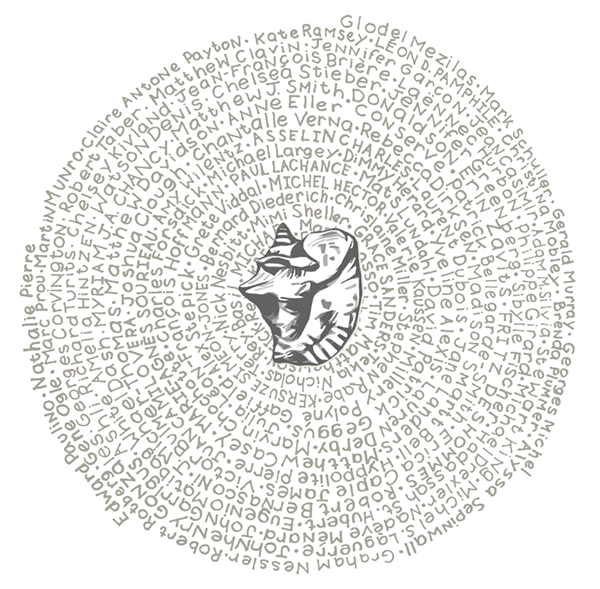
The Digital Library of the Caribbean (dLOC) is a cooperative digital library for resources from and about the Caribbean and circum-Caribbean. The dLOC partner institutions are the core of dLOC. dLOC partners retain all rights to their materials and provide access to digitized versions of Caribbean cultural, historical, and research materials currently held in archives, libraries, and private collections.
Since 2004, Digital Library of the Caribbean (dLOC), a multi-institutional, international digital library, has worked on data curation with various archives and libraries in the Caribbean by scanning and preserving rare books and manuscripts. dLOC follows a model of decentralized digitization and distributed collection development, thus giving Caribbean institutions, and those that know the collections most intimately, an important role in the decision making and production process. dLOC allows Caribbean institutions ownership of their cultural/national patrimony, while providing access to scholars and students around the world. Together, dLOC partners have created the world’s largest open access collection of resources from and about the Caribbean (3.51 million pages, serving 3 million users per month).
Digital POWRR (@digitalPOWRR)
Increasing the confidence, capacities, and capabilities of the less-technically-inclined to take a proactive role in managing and preserving their digital collections.
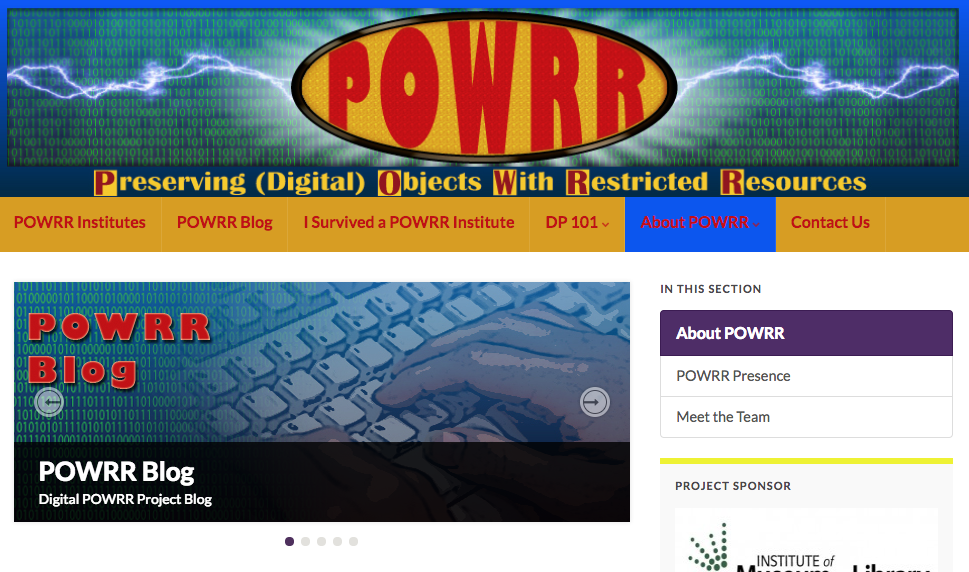
SInce 2012, the Digital POWRR Project has been working to demystify digital preservation with training and resources targeted specifically at resource-restricted institutions, as well as Lone Arrangers and similar solo practitioners. Their IMLS-funded Digital POWRR Institutes ensure that every participant goes home with an actionable plan for stewarding the digital materials their organization is responsible for. POWRR Institute training materials are freely shared to help everyone at every institution, including those who cannot make it to an Institute.
Documenting the Now (@documentnow)
Awareness-raising and tool-building to support the ethics of preservation.
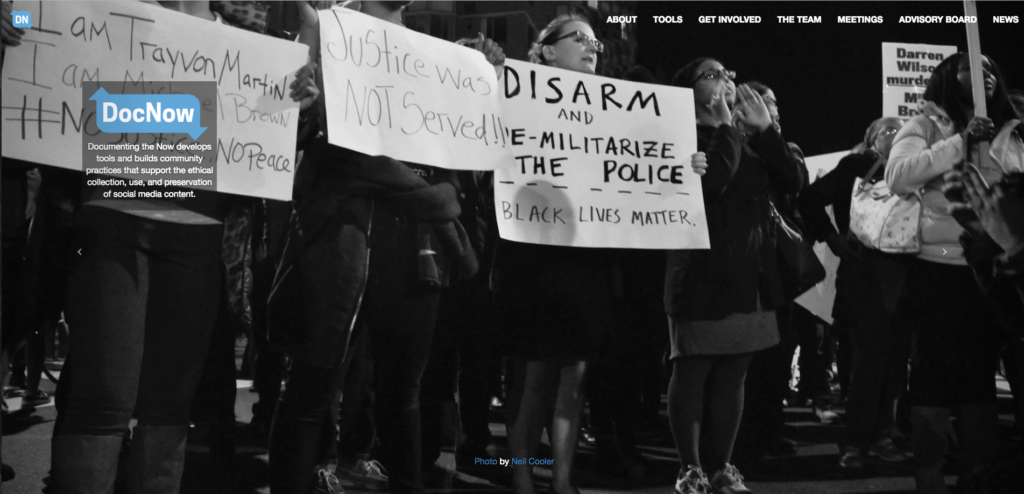
Documenting the Now responds to the public’s use of social media for chronicling historically significant events as well as demand from scholars, students, and archivists, among others, seeking a user-friendly means of collecting and preserving this type of digital content.
DocNow, a joint effort between the University of Maryland, University of California, Riverside, and Washington University in St. Louis, is building a variety of tools to help researchers work with Twitter data, and has drawn together a community to raise the visibility of discussions related to the ethics of collecting digital content. The suite of tools will enable communities to research and preserve digital content in conscientious and thoughtful ways.
Dr. Melissa Nobles and Professor Margaret Burnham
Creators of the CRRJ/Nobles Digital Archive (@CRRJ_NEUSL).
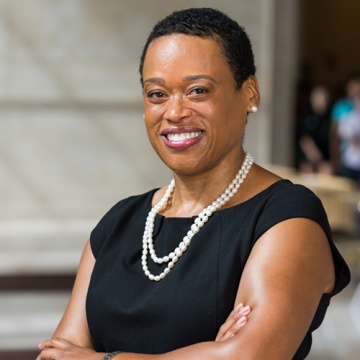
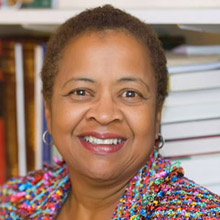
Dr. Melissa Nobles, Kenan Sahin Dean of the School of Humanities, Arts, and Social Sciences, and Professor of Political Science, MIT (left) and Professor Margaret Burnham, University Distinguished Professor of Law and Director, Civil Rights and Restorative Justice Project at Northeastern University (right)
Northeastern University’s Civil Rights and Restorative Justice Project is directed by Margaret Burnham, University Distinguished Professor. Melissa Nobles, Kenan Shahin Dean of the School of Humanities, Arts and Social Sciences and Professor of Political Science, Massachusetts Institute of Technology, has been associated with CRRJ as faculty and board advisor since its inception.
Building upon empirical research on lynching and racial violence chronicled by journalist Ida B. Wells, sociologist Monroe Work, the National Association for the Advancement of Colored People, as well as contemporary sociologists Stewart Tolnay and E.M. Beck, the CRRJ-Nobles Archive is a collection of records on incidents of racially-inflected homicides committed against African Americans in the southern states of Alabama, Arkansas, Florida, Georgia, Louisiana, Mississippi, North Carolina, South Carolina, Tennessee, Texas, and Virginia from 1930-1970. The goal of the CRRJ-Nobles Archive is to bring the important story of homicidal racial assaults in the mid-twentieth century to a broad and varied audience in order to deepen their appreciation of the significance of this history.
Educopia Institute (@Educopia)
A catalyst for collaboration among cultural, scientific, and scholarly institutions.
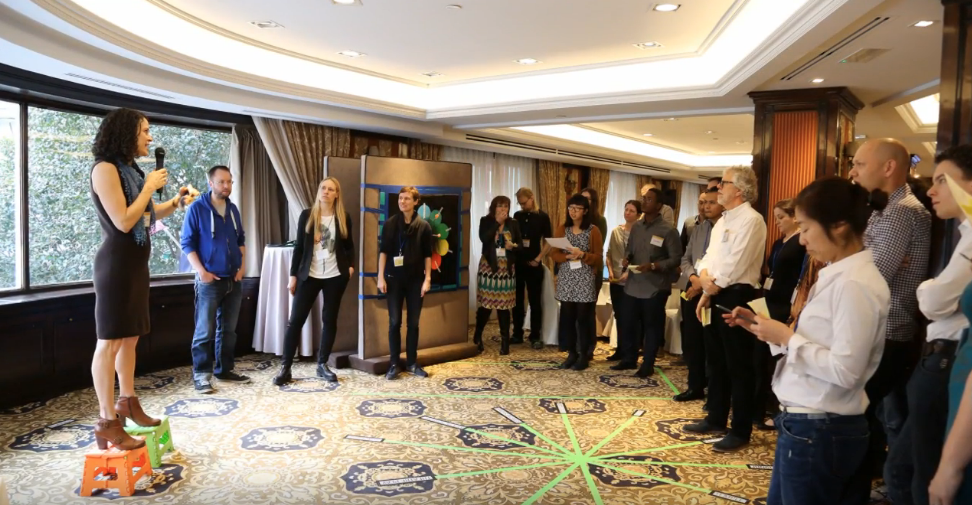
In 2017, the Educopia Institute provided administrative and technical scaffolding to support and strengthen the efforts of five networks: BitCurator Consortium, Library Publishing Coalition, MetaArchive Cooperative, Software Preservation Network, and the Coalition to Advance Learning. Spanning boundaries, sectors, and fields, Educopia’s community cultivation model unites people and institutions around shared challenges in digital preservation, scholarly communications, and continuing education.
Educopia was founded in 2006 to fill a critical gap in the information management landscape by providing a lightweight, inexpensive administrative infrastructure to facilitate and coordinate the work of collaborative communities. Their activities are designed to foster communities of engagement, and to encourage system-wide changes that empower and enable libraries, archives, museums, and other institutions to work collectively to ensure that knowledge is sustainably produced, widely shared, and preserved. In 2017, their six-person team facilitated community-driven activities reaching across more than 220 institutions on four continents, including libraries, archives, museums, and publishers across the academic, commercial, government, and nonprofit sectors.
Georgia HomePLACE
Building archival and digitization capacity in Georgia’s public libraries.
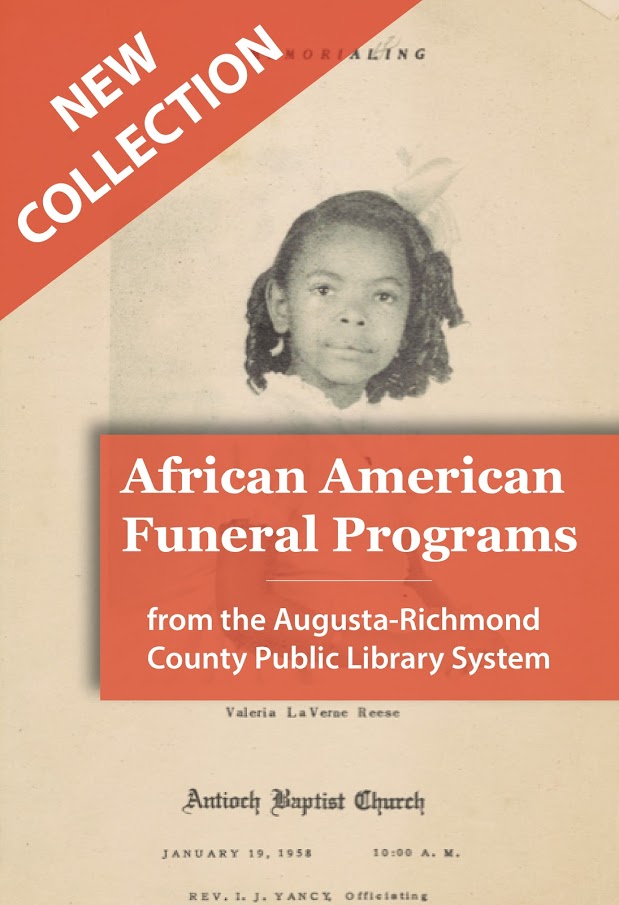
HomePLACE encourages Georgia’s public libraries to participate in state and national cultural heritage digitization initiatives. Supported with LSTA funds administered by IMLS through the Georgia Public Library Service, HomePLACE’s mission is to:
· Enable public libraries to create digital collections that tell the stories of their communities;
· Make these items accessible online to a wide audience via the DLG and DPLA; and
· Provide archives and preservation training opportunities for public library staff.
HomePLACE shifts focus from funding repetitive projects at individual institutions to a collaborative model which centralizes infrastructure and supports community projects at the local level. The initiative provides partners with training in various aspects of project development and management, and helps maintain benchmarks and best practices based on existing standards. Collaboration is encouraged between public libraries and strategic partners, including historical societies, museums, government agencies, schools and local subject experts.
As a complement to its training efforts, HomePLACE builds capacity through its equipment lending program and grant proposal development assistance. Public library partners may borrow any of eleven DigiKits–which include flatbed and microfilm scanners, as well as digital recorders for collecting oral histories–for technology assessment or community-driven events. HomePLACE and DLG staff have also created a suite of trainings, office hours, and other support to enable successful NEH Common Heritage application development.
Finally, through its participation in HistoryPin’s StoryBox program, HomePLACE staff and public librarians facilitated a series of twelve community-driven story sharing events, whose products will be shared via DLG and the DPLA.
Katherine Boss (@katy_boss)
Working to capture and preserve data journalism projects.
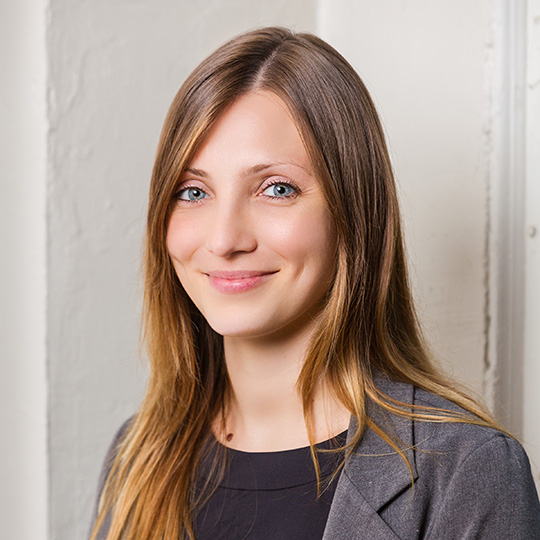
Katherine Boss’s innovative work on preserving news apps will allow the DLF community to achieve new breakthroughs in dynamic web archiving.
Katy’s work on the challenges of archiving digital journalism has been presented and cited internationally. She fosters cross-disciplinary partnerships through her leadership on a recently-funded IMLS grant that brings together computer scientists, librarians, and journalists around reproducible research methods. She is an exceptional collaborator and colleague. One of the many remarkable things about her work is her unusual ability to explain complex technical topics in simple language. This has the effect of democratizing knowledge and allowing a wide variety of people to participate in conversations about the future of archiving. These conversations were previously closed because participants conducted them in obscure technical-speak—that is, until Katy provided a translation. In her job as Librarian for Journalism, Media, Culture & Communication at NYU, she also serves as an important liaison between journalists, librarians, and scholars.
Kristi Park
Cultivator of open communities.

For nearly a decade, Kristi Park has been leading scholarly communications, digital preservation, and open access initiatives at the state and national levels. As marketing and programming coordinator and currently executive director of the Texas Digital Library (TDL), Kristi oversees a portfolio of services that make it more efficient and cost-effective for institutions in Texas to collaborate around sharing and preserving scholarship and research data. During her tenure, Kristi has been instrumental in organizing, empowering, and championing TDL’s membership to create open source tools for the management of electronic theses and dissertations while also contributing to other open source platforms, like DuraSpace’s DSpace and DuraCloud and Harvard’s Dataverse, to enable dozens of institutions to provide long-term open access to their content.
Beyond Texas, Kristi has been a driving force in expanding the capacity of community-based open initiatives. She has served on the DuraSpace steering committee and led the development of the Texas node of the Digital Preservation Network. She was also one of the co-authors to the Digital Preservation Declaration of Shared Values draft document, signaling her commitment to collaborative solutions for digital preservation. The breadth of Kristi’s involvement in open access and open source efforts, in addition to her ability to mobilize various constituencies across the country, make her an ideal candidate for the DLF Community/Capacity Award. The evidence of her work shows a generous, community-focused leader who consistently collaborates across organizations to make all of our institutions better stewards of the cultural heritage and scholarly record.
Metropolitan New York LIbrary Council (METRO) / Studio599 (@mnylc)
A platform for partnerships and collaborative projects in New York City.
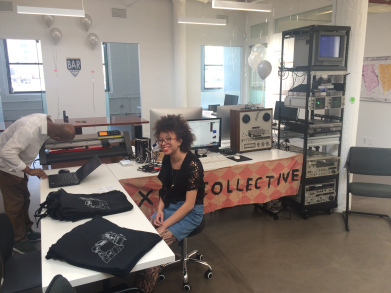
METRO’s Studio599 is an open community space for library and archive specialists in New York City. The studio offers tools and resources focused on the digitization, description, and presentation of cultural heritage materials, making the labor and communities associated with archiving and preservation visible, legible, and accessible. The space itself is a platform that draws on the expertise of METRO’s 250+ member organizations. It is a place where members can organize to create their own community narratives and calls to action. Since opening in April 2017, the studio has supported active, project based learning; encouraged connection and curiosity; and hosted performances, installations, hackathons, symposia, workshops, and more.
Studio599 aspires to a culture of learning through partnerships and experimentation. One example of a recently launched studio partnership is with the XFR Collective, a non-profit group working with artists, activists, and other individuals in NYC to preserve at-risk audiovisual media materials. The partnership’s central goal is to design and build an audiovisual transfer station for Studio599, where XFR Collective members help METRO staff create a plan for ongoing support for, access to, and educational programming around a new transfer station. Drawing on XFR Collective’s expertise in media migration and preservation, the new rack at METRO allows institutions and individuals to take their old audio and video tapes and transfer them into digital formats that can be preserved into the future. By supporting and activating existing communities of practice such as this one, Studio599 expands the collective capacity of our field.
Santa Barbara Statement on Collections as Data
A set of principles to guide collections as data work.
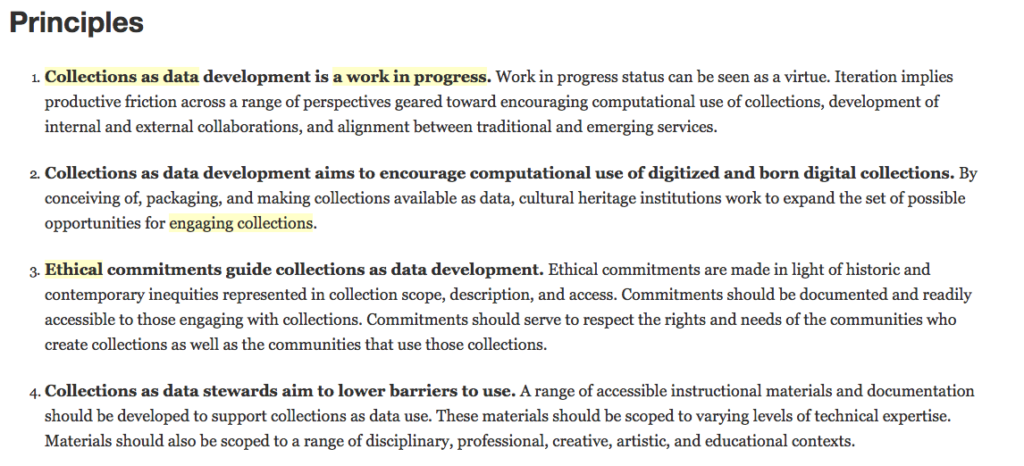
The drafting of the Santa Barbara Statement on Collections as Data has been a major component of the Always Already Computational – Collections as Data project, an IMLS-supported series of meetings that aim to create ‘a strategic approach to developing, describing, providing access to, and encouraging reuse of library collections that support computationally-driven research and teaching’.
The development of the Santa Barbara Statement on Collections as Data was a deliberative, inclusive process from conception through implementation and the aftermath. Prior to the event, participants were asked to contribute position statements (shared on the project resources page) that together laid the groundwork for the work conducted at the forum. The final statement is not final, but remains open for community input and conversation. The level of thoughtfulness and care put into the development of this statement has been an essential characteristic of Always Already Computational, which acknowledges inspiration and practices from the community as part of the development, design, and presentation of the project’s outcomes and findings.
Read the full statement here.
South Asian American Digital Archive (@SAADAonline)
SAADA Diversifies the Historic Record.
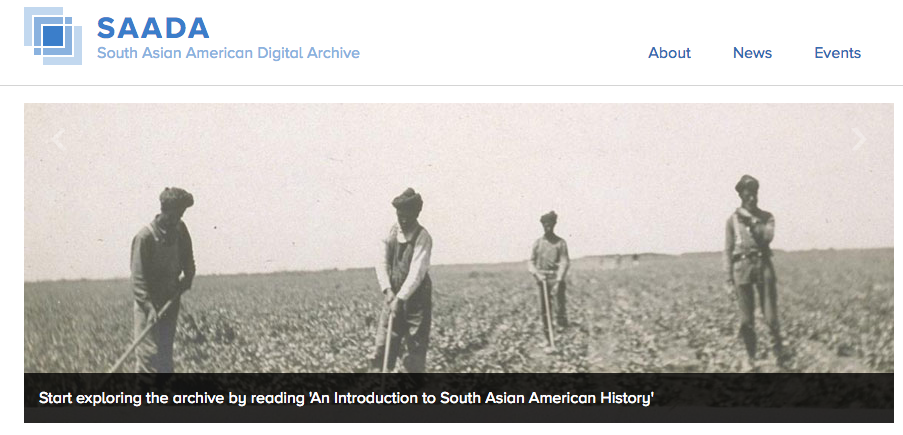
An online only, post-custodial, independent community-based archives, SAADA creates a more inclusive society by giving voice to South Asian Americans through documenting, preserving, and sharing stories that represent their unique and diverse experiences. In the ten years since its founding, SAADA has built the largest publicly accessible collection of stories and materials related to the experiences of South Asian Americans. SAADA is an.
Materials in the archives, dating from the late-1800s up to the present day, reflect on the richness of South Asian American history and demonstrate the diversity of the American experience. Through participatory projects like the First Days Project and the Road Trips Project SAADA has empowered immigrants and people of color to share their own personal and community histories as part of a larger American narrative. Through an artist-in-residency program called “Where We Belong,” SAADA commissioned five artists to create new works inspired by the archives, adding layers of meaning to the collection. By publishing the blog Tides and a soon-to-be-released textbook, Our Stories: A History of South Asian America, SAADA provides much-needed context for the general public to interpret its materials. Materials in the archive are used extensively by scholars, researchers, educators, journalists, artists, and most importantly, South Asian American community members.
In the past decade, SAADA has made significant strides in countering the symbolic annihilation of South Asian Americans, and has served as an inspiration to countless other community archives started and sustained by marginalized communities in the U.S.
We Here (@librarieswehere)
A supportive community for library and archive workers of color.
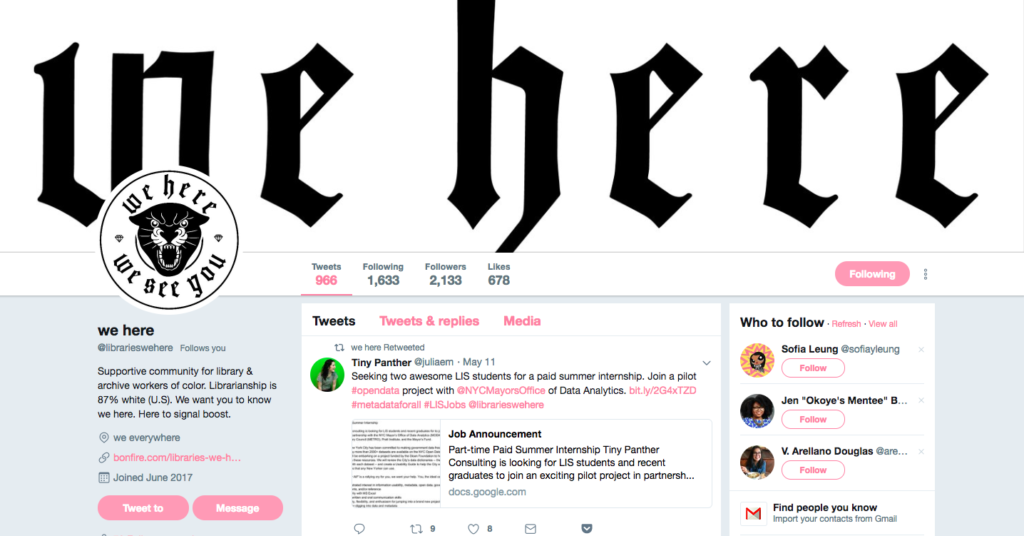
Across social media platforms, We Here provides closed groups for support, collaboration, and mentorship among people of color (POC) as well as channels open to all. The group, which was established in 2017, seeks to provide a welcoming, professionally engaging, supportive, safe community for members. Members have facilitated meet-ups at conferences, started a list of grants and fellowships for POC in LIS, and created a Safe Space Agreement/Code of Conduct.
In a field that’s 87% white, the group has become an engaging community that spans the LIS field and amplifies the much-needed message: ‘we here’.
